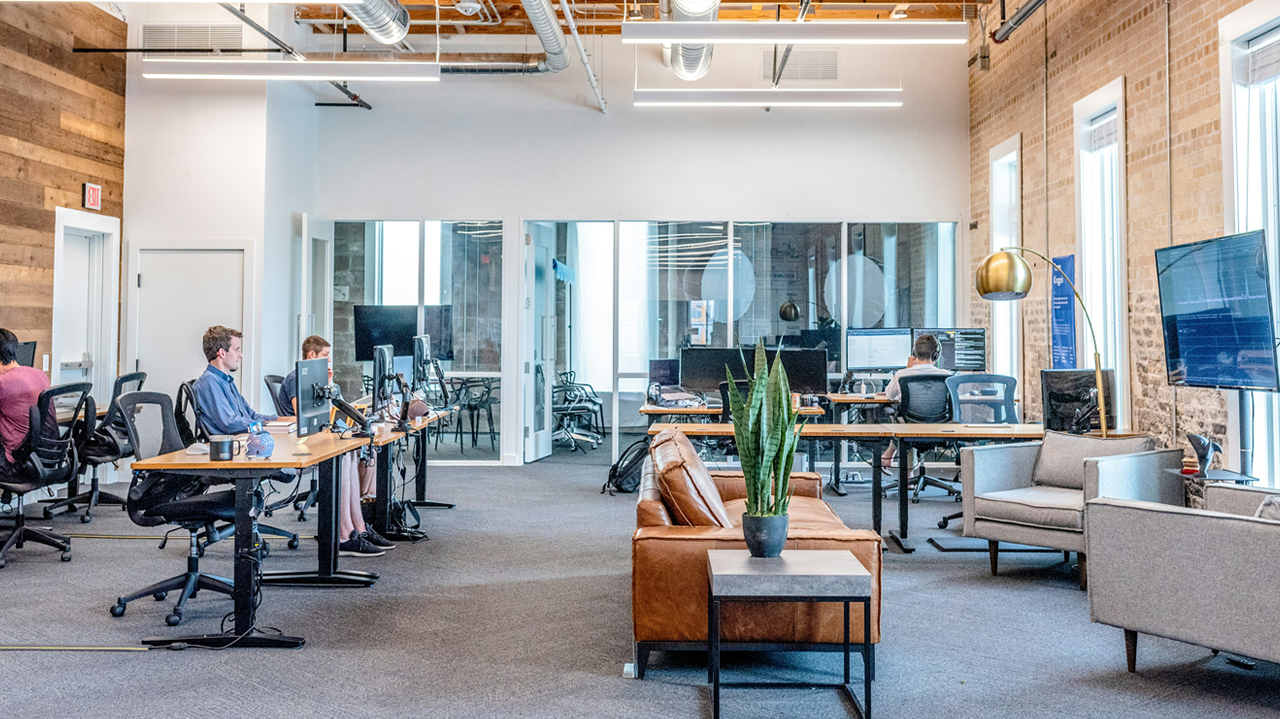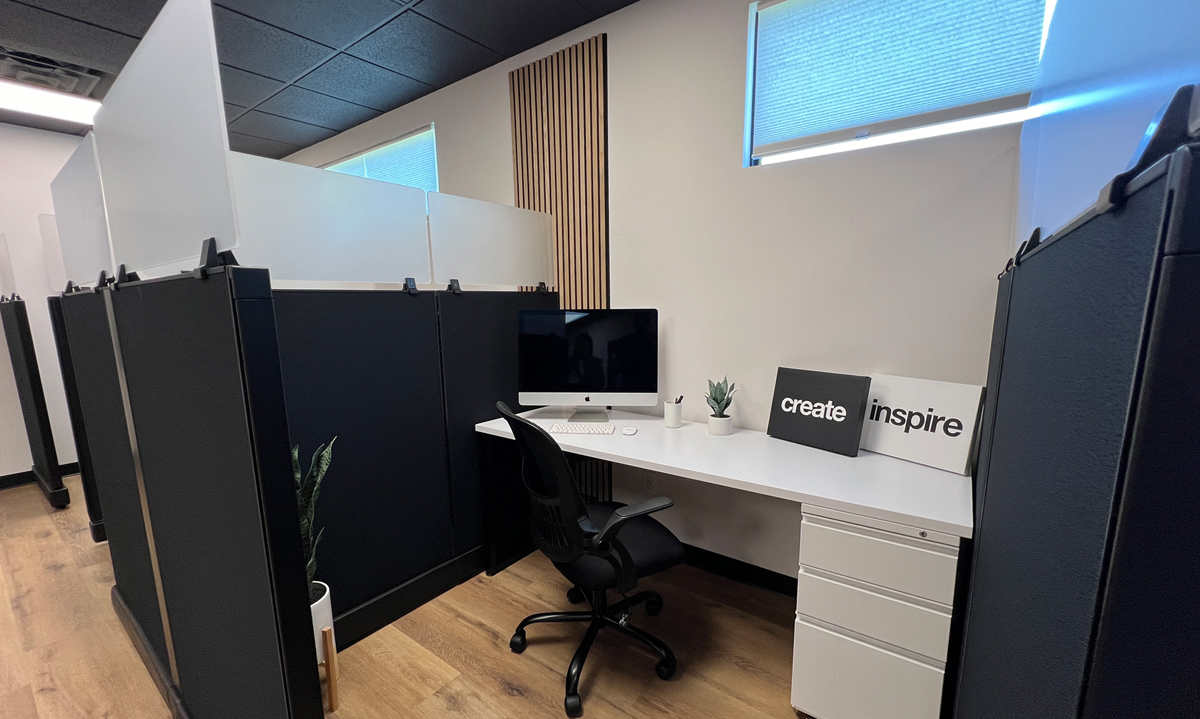
Empowering Local Economies: The Coworking Space Phenomenon

Over the past decade, shared working spaces have transitioned from a niche solution for freelancers and tech startups to a mainstream phenomenon, reshaping the global work landscape. These innovative and collaborative hubs are revolutionizing our perception of the workplace and having a tangible impact on the economic landscapes of the communities they serve. With numerous companies working under one roof, shared office spaces form dynamic ecosystems that actively support and invest in the surrounding local businesses. From stimulating local businesses and creating jobs to enhancing property values and fostering a sense of community, the ripple effects of coworking office spaces are profound and far-reaching. These spaces infuse new energy and ideas into local economies by attracting a diverse group of entrepreneurs, startups, and remote workers. This article explores coworking spaces’ multifaceted influence on local economies, examining their impact on job creation, business ecosystems, real estate, and community inclusivity.
Influence of Coworking on Local Economies
Collaborative working spaces play a pivotal role in the growth of the local economy, community development, and urban revitalization. Some significant ways in which coworking spaces impact local economies are discussed below:
Supporting Entrepreneurs and SMEs
Statistics show that 37.93% of SMEs globally utilize co-shared workspaces, making them the predominant users of flexible working spaces. Startups follow closely at 27.12%, with freelancers comprising 16.61%. Coworking spaces significantly bolster entrepreneurship, startups, and SMEs by offering essential resources, mentorship, and networking opportunities that spur business growth and innovation. As these businesses grow, they generate new employment opportunities, reducing local unemployment rates and increasing household incomes. The heightened economic activity from flourishing businesses stimulates local commerce, benefiting nearby retailers, service providers, and other local enterprises. The presence of successful SMEs also inspires further investment in the area, fostering a vibrant business ecosystem. As these businesses prosper, they contribute to a diversified and resilient local economy, capable of weathering economic fluctuations and supporting long-term economic development.
Driving Employment Growth
Coworking spaces serve as catalysts for increased employment opportunities, facilitating the growth of local economies. These collaborative and supportive spaces enable small businesses, startups, and other entities to thrive and expand their operations. As these businesses grow, they hire more employees, directly contributing to job creation in the local area. Boutique coworking spaces stimulate demand for a wide range of services by fostering a network of interconnected professionals and businesses, leading to further employment opportunities in ancillary industries. This multiplier effect amplifies the economic impact of modern working spaces on local job markets, creating a ripple effect of employment growth throughout the community.
Reduced Overhead
Coworking space providers offer businesses a significant reduction in overhead costs, stimulating local economic growth. Unlike traditional office spaces with substantial financial commitments such as rent, utilities, office equipment, and maintenance fees, communal workspaces offer flexible membership plans that cover these expenses. This financial flexibility frees up capital for businesses to invest in other areas, such as product development, marketing, and talent acquisition. This leads to expansion and job creation within the local area.
Moreover, the affordability of coworking spaces lowers the financial barrier to starting a business, encouraging entrepreneurship and the launch of new ventures. This is crucial for fostering economic diversification and innovation. Coworking spaces’ collaborative environment and shared resources also enhance productivity, increasing business output and growth. This increased efficiency contributes to the area’s overall economic health, making coworking spaces a critical factor in fostering a vibrant and resilient local economy.
Enhancing Local Real Estate Markets
Coworking spaces transform properties into dynamic work hubs by repurposing underutilized buildings such as old warehouses, industrial spaces, or vacant office buildings. This revitalization increases demand in the surrounding areas, raising property values and encouraging further development. Coworking spaces attract diverse professionals, including web developers, entrepreneurs, and remote workers from the IT sectors, which drives demand for residential and commercial real estate. These professionals seek places to work, live, shop, and dine, stimulating the local economy. Additionally, coworking spaces draw other businesses and services to the area, such as coffee shops, restaurants, and retail stores, acting as anchors for urban redevelopment. This transformation enhances the neighborhood’s attractiveness and economic vitality, fostering a vibrant and thriving community.
Attracting and Retaining Talents
Coworking space-providing companies act as beacons, drawing in top-tier talent with their dynamic setups, complete with cutting-edge facilities and a culture that fosters innovation and collaboration. This surge of talent ignites and propels local economic development. The appeal of coworking spaces lies in their ability to meet the evolving needs of today’s workforce, characterized by a desire for flexibility, autonomy, and meaningful connections. These spaces cater to these needs by providing a variety of work environments and coworking membership packages, ranging from private offices and dedicated desks to open-plan seating with top-notch amenities like high-speed internet, conference rooms, and social areas. This appeal is particularly pronounced among millennials and Gen Z workers, who are increasingly shaping the talent landscape.
Beyond the physical infrastructure, coworking spaces are fertile ground for idea exchange, networking, and collaboration. This fertile environment draws individuals with diverse skill sets and backgrounds, all eager to contribute and learn from one another. Moreover, companies strategically located near coworking spaces can tap into this rich talent pool, ensuring access to innovative minds and fostering a culture of growth and creativity.
Inclusivity and Accessibility
Coworking spaces democratize access to professional environments by providing flexible and affordable workspace options, making it easier for individuals and businesses to overcome the costs and commitments of traditional office spaces. This democratization ensures that amenities like high-speed internet, conference rooms, and state-of-the-art office equipment are accessible to all, regardless of company size or individual status. Coworking spaces further enhance inclusivity by providing a variety of membership plans that cater to diverse needs and budgets. This accessibility enables a broader range of professionals to benefit from top-notch workspaces, leveling the playing field and fostering a vibrant and competitive local economy.
Accessibility is another significant benefit of coworking spaces. Often located in urban centers and suburban areas, these spaces are easily accessible by public transportation, making them convenient for a wide range of professionals. Some coworking spaces offer 24/7 access, accommodating various work schedules and time zones, which is particularly advantageous for remote workers and international businesses. As more individuals and companies utilize these coworking spaces, local communities reap the rewards through increased economic activity, innovation, and job creation.
| Aspect | Explanation | Impact on Local Economy |
|---|---|---|
| Support for Small Businesses | Coworking spaces provide affordable office solutions for startups and small businesses. | Encourages entrepreneurship and the growth of small businesses, leading to job creation. |
| Local Employment | Hiring local staff for management, maintenance, and support roles within the coworking space. | Generates employment opportunities and reduces local unemployment rates. |
| Increased Foot Traffic | Attracting diverse professionals who frequent local businesses, cafes, and restaurants. | Boosts revenue for nearby businesses and contributes to the local economy. |
| Community Building | Hosting networking events, workshops, and meetups that bring together local professionals. | Fosters a sense of community and collaboration, driving local innovation and business partnerships. |
| Real Estate Utilization | Utilizing vacant or underused buildings for coworking spaces. | Revitalizes neglected areas and increases property values, benefiting local real estate markets. |
| Local Services and Vendors | Partnering with local service providers (e.g., cleaning services, IT support, caterers). | Supports local vendors and service providers, keeping business expenditures within the community. |
| Economic Diversification | Attracting a wide range of industries and professionals. | Diversifies the local economy and reduces dependency on single-industry employment. |
| Talent Retention | Providing attractive work environments that encourage talented individuals to stay in the area. | Helps retain local talent and prevents brain drain, ensuring a skilled workforce for local businesses. |
| Innovation and Entrepreneurship | Offering resources and support for new business ideas and startups. | Promotes innovation and entrepreneurship, leading to new business ventures and economic growth. |
| Business Collaboration | Facilitating partnerships and collaborations between members and local businesses. | Strengthens local business networks and creates synergies that drive economic development. |
Table: Above, we outlined the various ways in which coworking space providers contribute to the empowerment and growth of local economies
Fostering Innovation and Collaboration
Coworking spaces are incubators of innovation and collaboration, fostering a culture of creativity, knowledge exchange, and partnerships. These environments serve as catalysts for economic dynamism and growth. By bringing together individuals from diverse professional backgrounds, coworking spaces facilitate the cross-pollination of ideas, develop innovative solutions, and drive the creation of new products, services, and business models.
In coworking environments, individuals interact, share experiences, exchange insights, and tap into a rich knowledge spanning various industries and disciplines. This interaction enriches individual skill sets, fosters collaborative projects, and forms partnerships that can be instrumental in the success of startups and small businesses. Shared resources, mentorship opportunities, and networking events arranged in these spaces create an environment that nurtures the entrepreneurial spirit, leading to the launch of new businesses and cultivating a vibrant startup culture within the local economy.
Coworking spaces’ collaborative culture also helps build strong professional networks and communities. Members often support each other through referrals, partnerships, and sharing of best practices, creating a sense of camaraderie and mutual support. A survey revealed that 80% of participants rely on their coworking peers for assistance or guidance, and 64% said they gain additional freelance work or projects through their connections. This community-driven approach boosts individual business success and strengthens the local business ecosystem.
Impact Professional Growth and Well-Being
By providing an environment that merges work and well-being, coworking spaces promote a balanced approach to professional life, resulting in higher productivity and job satisfaction among members and boosting the local economy. These spaces frequently host workshops, seminars, and skill-sharing sessions, providing members with valuable educational opportunities. Such programs enable individuals to enhance their skill sets, stay updated on industry trends, and acquire new competencies, resulting in a more skilled and adaptable workforce. This is crucial for the growth and competitiveness of local businesses, as evidenced by a survey where 69% of coworkers reported acquiring new skills while coworking. A survey found that 89% of coworkers reported increased happiness since joining a coworking space. These environments often include amenities such as fitness centers, meditation rooms, and wellness programs, which promote a healthy work-life balance. Ergonomic furniture, natural lighting, and green spaces improve comfort and reduce stress. The strong sense of community and opportunities for social interaction help alleviate the isolation often associated with remote work or freelancing. Regular social events, networking sessions, and community activities foster a sense of belonging and support among members, contributing to their mental and emotional well-being.
Conclusion
As we look to the future of work, coworking spaces emerge as integral players in driving economic progress. By providing opportunities for networking, skill development, and collaboration, they empower individuals and businesses to thrive. By reducing overhead costs, coworking spaces free up resources for growth and innovation while revitalizing real estate markets by repurposing underutilized buildings. Moreover, coworking environments attract and retain top talent, enhance inclusivity and accessibility, and foster a culture of continuous learning and community support. Coworking spaces also play a crucial role in improving professional growth and personal well-being, promoting a balanced work-life approach that enhances productivity and satisfaction. The comprehensive influence of all these boosts individual business success and strengthens local economic resilience, making coworking spaces key drivers of vibrant and thriving communities.





